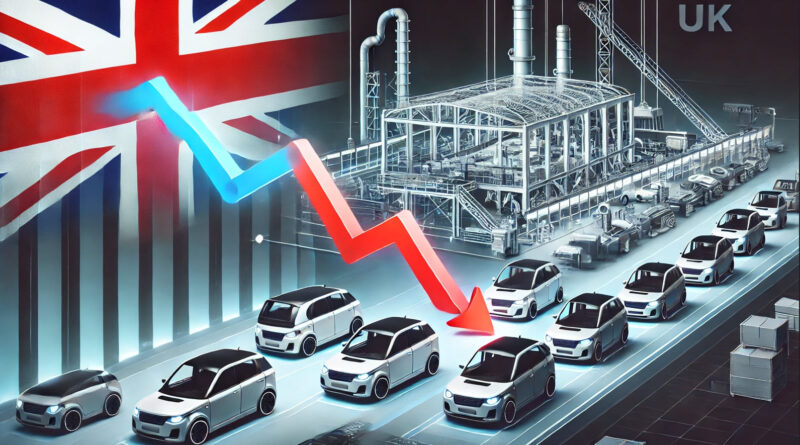British Car Production Falls as Drivers Steer Away from EVs
The British Car Production Falls and is hitting a rough patch, with production levels tumbling—and it’s not hard to see why. While the government and automakers push for an electric future, many British drivers just aren’t buying it. Literally. The shift to EVs isn’t happening as fast as expected, and that’s causing some serious ripples in the industry.
Why Are Car Factories Slowing Down?
Several key factors are making life tough for UK car manufacturers right now. It’s not just one thing—it’s a mix of consumer hesitation, rising costs, and post-Brexit complications.
1. People Just Aren’t Sold on EVs Yet
Let’s be honest: electric cars are still a tough sell for many drivers. Concerns about high upfront costs, range anxiety, and charging infrastructure are making people think twice before making the switch. While EVs are great on paper, in reality, a lot of people still prefer the reliability and convenience of petrol or hybrid cars.
2. It’s an Expensive Time to Buy a Car
With the cost of living going through the roof, splashing out on a brand-new EV isn’t exactly top of the list for most households. Even with government grants, EVs tend to be pricier than petrol cars, and with interest rates still high, fewer people are taking the plunge.
3. Charging Worries Are a Big Issue
If you’ve got a driveway and can charge at home, EV ownership is pretty straightforward. But for the millions who rely on public charging stations, it’s a different story. The UK’s charging network is still patchy, with not enough rapid chargers in key locations, and that’s putting off a lot of potential buyers.
4. Brexit Complications Haven’t Helped
Since leaving the EU, UK car manufacturers have been dealing with extra tariffs, supply chain disruptions, and shifting trade rules. That’s making British-built cars less competitive in Europe, which is a massive market for exports.
5. Mixed Messages from the Government
First, it was a 2030 ban on new petrol and diesel car sales. Then, it got pushed back to 2035. These constant changes have left both manufacturers and consumers confused. Should people buy a petrol car now, or will it lose value overnight? Should companies invest in EVs if the demand isn’t there yet? It’s a mess.
The Auto Industry’s Response: A Change of Gear
With EV sales slowing down, car manufacturers are adjusting their game plan. Some are scaling back EV production and focusing on hybrid models, which seem to be a more comfortable middle ground for UK buyers. Others are holding back on big investments in EV plants until demand picks up.
What’s Stopping People from Going Electric?
- They’re Expensive – Even with grants, EVs are often out of reach for the average buyer.
- Range Anxiety Is Real – Drivers worry about running out of charge, especially on long trips.
- Depreciation Is a Concern – Battery tech is evolving fast, and people don’t want to end up with outdated EVs.
- Charging Can Be a Hassle – Public chargers are often broken, slow, or already in use.
How Can British Car Production Get Back on Track?
The UK auto industry needs a few key things to turn things around:
- Better Charging Infrastructure – More rapid chargers in more places will help ease range anxiety.
- Cheaper EVs & Battery Production – Lower costs will make EVs more accessible to everyday buyers.
- Clearer Government Policies – A consistent long-term plan will help both businesses and consumers feel more confident.
- More Hybrid Options – Many buyers see hybrids as a stepping stone before going fully electric.
- Stronger Trade Deals – Fixing post-Brexit trade headaches would make British cars more competitive abroad.
Final Thoughts
Car manufacturers went all-in on EVs, expecting drivers to follow. But as it turns out, the switch isn’t happening overnight. UK car production is feeling the impact, and unless costs come down and infrastructure improves, the slowdown could continue.
For now, British drivers are sending a clear message: they’re not ready to fully commit to EVs just yet. Until things change, expect to see more hybrids rolling off the production lines—and a lot of hesitation when it comes to going all-electric.
Buying a used VW. Buying used vauxhall, BMW, Jaguar, Ford, Volvo, Range rover, Bentley, Aston Martin, Porsche, Ferrari, Lamborghini, Maserati, Hyundai, Tesla, Honda, Pagani

